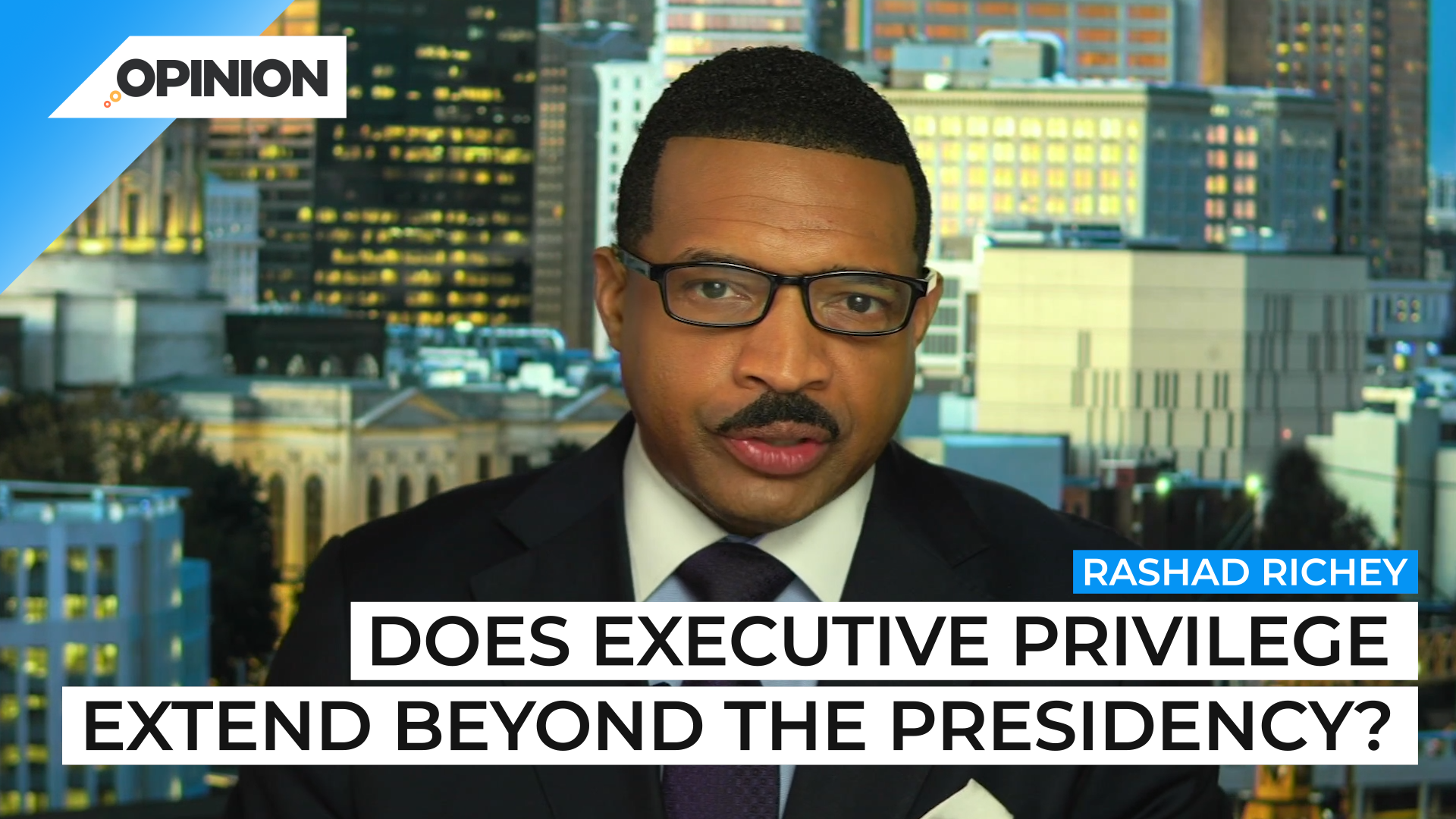
Commentary
-
Our commentary partners will help you reach your own conclusions on complex topics.
Here we go. A Trump appointed judge, federal judge may have actually committed obstruction of justice, according to multiple legal experts. Let me give you the background to this. So there’s a judge – her name is Eileen Mercedes Cannon. Judge Cannon was appointed by Donald Trump, and approved by the US Senate in 2020. That judge has now ruled in favor of Donald Trump, citing that Trump can have what’s called a master…a special master, review the evidence seized by the FBI from his home in Mar-a-Lago. Now, typically, a special master, a third-party attorney, is appointed in situations like this to do one thing: To determine what is protected under attorney-client privilege. What’s unprecedented about this ruling is that it looks as if the judge is going to allow the powers of this special master to go beyond looking at documents that may be covered by attorney-client privilege, and actually connects to what’s called executive privilege.
I’m going to explain in a moment why that’s unprecedented. So U.S. District Judge Cannon cleared the way for a third-party attorney to review all seized materials, not just for documents covered by the attorney-client privilege, the circumstance in which is pretty normative for a special master, but also potential executive privilege concerns. A move that is unprecedented, and here’s why.
It’s not settled law. What is considered privileged communication is typically when a president talks to an advisor, a trusted individual within the White House, and that conversation should not be made public. Well, here’s what’s not settled about it. Does it extend beyond the presidency? In other words, can an ex-President claim executive privilege or does it only exist for the current president of the United States?
Once again, unsettled law. That’s why it’s unprecedented for a special master to be involved in making this decision, when the court Norte statute has provided clarity on if there’s even such a thing as privileged communications after someone is president of the United States. All right, here’s some of the key takeaways from the judge’s ruling and what may happen next.
A significant win for Trump, many are calling it, the primary takeaway simple: The ruling is a major win for Trump if, if, the special master decides that all of this communication and all of this confidential information, is in fact privileged and cannot be used in the investigation. Now, remember, this is about what can be used in the investigation. This is not about what the government can see. They’ve already looked at it.
They said, listen, we’ve already used our internal filter methodology, we have gone through the information and we put one category as privileged, and the other as not privileged communication. So what does that mean? That means the government has already looked at all of it. So this is not about what the government sees. This is not about what the government knows. This is about what the government can use as their investigative standard and what will be allowable in the future in federal court.
Isn’t that ironic, that the same guy who basically admitted to stealing classified documents, that same guy, former president of the United States…he wants you to believe that his conversation was privileged. Let’s call it classified. That his very conversations cannot be exposed to the public; they’re privileged communications, according to him. So he wants that to be secret, but he doesn’t give a damn about the secret he stole from the White House. He doesn’t care about the secrets, he housed at Mar-a-Lago. He doesn’t care that he was mishandling secret, or classified, highly confidential information.
There’s more. Both sides have been told by this judge, they need to come up with basically a parameter, a set of rules in order to engage how this special master will be governed and will operate. That’s likely not to happen anytime soon. Plans for the review of executive privilege, Trump said that a special master review needed to go beyond documents covered by the attorney-client privilege and it needs to look at his privileged communication. This is a strategy, once again.
How did they get this judge? Well, they judge shopped, they basically made sure they filed this action with a federal judge who would be favorable to Donald Trump. That’s how they did it.
Steve Vladeck, who is the chair of the Charles Alan Wright in Federal Courts at the University of Texas law school, called the ruling preposterous. He highlighted and I quote, “the part where it blocks the government from continuing to use materials already in its possession, at the very least, that last ruling creates an immediately appealable injunctive-like order, which DOJ can now take to the 11th Circuit.”
So here’s my question to you. If Donald Trump is in fact not guilty of mishandling classified information, why not fight the case on the merits that the information was neither classified nor was it in fact, criminal what Trump did? That’s not how they’re fighting this case. They’re utilizing all of the leverage and manipulation and power that comes with being a former president of the United States. Once again, another engaging opportunity for corruption by the former president. There you have it.
-
Don’t fall for GOP’s cheap racist attacks on Kamala Harris
Republican rhetorical attacks on Vice President Kamala Harris, the leading Democratic candidate for president, escalated as soon as President Biden announced that he was stepping back from the election. Many Republicans accused Harris of being “a DEI hire” and indicated that she only got her position because of her skin color or gender, not her…
-
Violent rhetoric in politics amplified by Republican leaders
In the wake of the attempted assassination of former President Donald Trump, some Republicans were quick to blame Democrats for the attack, linking it to “incendiary rhetoric” about Trump. One recent example cited by his supporters is President Joe Biden’s comment: “It’s time to put Trump in the bullseye. He’s gotten away with doing nothing…
-
America is in trouble
President Biden’s debate performance drew a variety of reactions from Democrats, with some calling for him to step down, others saying that he should support another candidate, and some still insisting that Biden remains the best choice. Meanwhile, the U.S. Supreme Court expanded presidential powers and criminal immunity in its Trump v. United States decision…
-
Americans deserve younger candidates, better ideas
On March 7, President Joe Biden delivered a well-received State of the Union address, speaking clearly and in detail about the challenges that the nation must confront. Less than four months later, on June 28, a very different-looking president took the stage to debate Donald Trump. In both speech and physical appearance, this Biden suddenly…
-
Time for Christian evangelicals to part ways with Trump
As former President Trump vies for another shot at the White House, one loyal demographic he is counting on is white Christian evangelicals. More than 80% of evangelicals backed Trump in the 2020 election, and after endorsing a Louisiana law requiring the Ten Commandments to be displayed in public school classrooms, he’s gearing up for…
Latest Opinions
-
 U.S. Department of Defense
U.S. Department of Defense
Congress still trying to figure out how to reduce wasteful military spending
-
 DVIDS
DVIDS
US Navy, Air Force making waves with new weapons at RIMPAC
-
 Getty Images
Getty Images
Israeli PM Netanyahu meets with Trump at Mar-a-Lago
-
 Getty Images
Getty Images
Growing US nuclear power resurgence reaches the nation’s heartland
-
 Getty Images
Getty Images
Beer from the sun, other solar thermal projects get government funding
Popular Opinions
-
In addition to the facts, we believe it’s vital to hear perspectives from all sides of the political spectrum.


